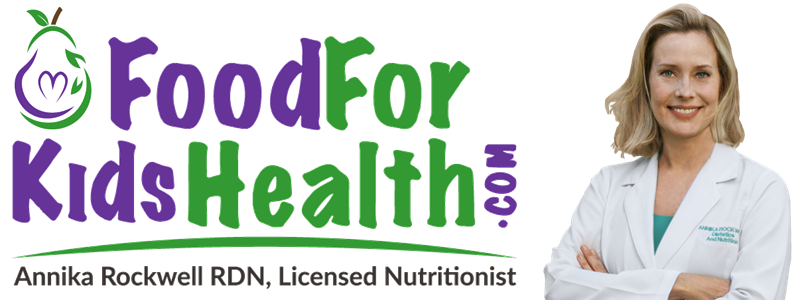 Does your child experience frequent constipation or have trouble passing stools?
Does your child experience frequent constipation or have trouble passing stools?
A healthy child should have 1-2 stools daily. If your child is not having regular bowel activity, the immune system becomes weakened and it leaves the body vulnerable to developing illness and disease. This is particularly concerning for the growing and developing body of a child.
Constipation and other bowel disorders are common symptoms of underlying illness, which can be treated with dietary and lifestyle changes. When your child becomes constipated, it’s a signal that the digestive tract is lacking in friendly bacteria, which normally populate the bowel and are obtained from foods your child eats. A good diet provides a solid foundation for health to keep the digestive tract strong and capable of good elimination to prevent disease.
Where does constipation begin?
When a child is born, the infant receives its flora or bacteria from the mother while passing through the birth canal. If the mother has a history of poor dietary habits, antibiotic or contraceptive use, her flora will be unhealthy. If she does not breast-feed her baby, the gut flora of the child will be further compromised. Digestive problems in the infant will develop including colic, gas, constipation, diarrhea, bloating, and difficulty in feeding.
As a result, intestinal damage and malnourishment occurs early on in life, and is often also accompanied by various allergies. The child may also have frequent illnesses such as ear infections. These problems are treated by doctors with multiple doses of antibiotics, which cause the healthy bacteria in the body to diminish and make matter worse.
Poor bacterial flora and digestion are at the center of serious health issues that can become chronic. When children are born with intestinal bacterial imbalances or gut dysbiosis, they tend to have a weakened immune system and are more susceptible to illness.
Children who consume diets rich in carbohydrates such as grains and processed foods, which are difficult to digest, will likely continue to experience more issues with gut dysbiosis. According to Dr. Natasha Campbell-McBride, people with abnormal or damaged intestinal flora will want to eat those foods which actually support the continual survival of unhealthy bacteria, and will refuse or exclude healthy foods.
Beneficial flora (bacteria) play a critical role in proper stool formation and elimination. It also means that waste has become impacted inside the bowels. Waste material such as feces, accumulated mucous, dead cellular tissue, worms, and parasites produce a breeding ground for the development of a variety of digestive disorders.
These materials are very toxic for the body and can re-enter and circulate in the blood stream causing fatigue, weakness, and disease. Without intervention, if your child regularly experiences constipation and is unable to eliminate, he or she could experience chronic digestive disorders, to allergies, to degenerative diseases like cancer later in life.
Here are 8 safe, natural ways to keep your toddler’s digestive tract healthy and eliminate constipation:
- Probiotics: Support the digestive system with friendly bacteria.
Probiotics and healthy bacteria are essential for health. Try HLC Mindlinx Probiotics powder by Pharmax This formula is specially formulated children over 2 years who have constipation or other gastrointestinal upsets including acid reflux, vomiting/excessive spit-up, gas, indigestion, diarrhea, or sensitivities to certain foods including dairy or gluten. This powder dissolves easily in milk or water, or can be taken right off the spoon. Taking probiotics is especially important during and after antibiotic treatment. Keep your child on probiotics for at least 6 months after treatment. - Remove processed carbohydrates. Stop feeding processed or refined foods, and anything containing sugar or corn syrup to your child! These foods are not only nutritionally empty, but they disrupt the balance of friendly bacteria in the digestive system which often leads to constipation and bowel trouble.
- Lubricate their intestines with healthy fats. Add at least 1 spoon of sour cream, pastured butter, ghee, or coconut oil into each of their meals. For example, you can add a spoon of coconut oil to their breakfast (into yogurt, pancakes), or sour cream onto their omelet, a big spoon of butter onto their veggies or rice during lunch, and a big spoon of sour cream into their beans or soup during dinner.
- Cook with plenty of healthy fats like ghee, palm oil, and fats from healthy animals (i.e. birds on pasture, beef, chicken, pork, geese, ducks, grass-fed meats and poultry). These fats are stable and safe for higher temperature cooking. If you are cooking at low temperature, you can use butter, olive oil, and virgin coconut oil which are all more delicate and burn easily. It’s important you not burn the oils since they will have a negative impact on the GI. Omega 3 fats are also critical and helpful at lubricating the intestines and healing inflammation int he GI which causes constipation. Give your child cod liver oil daily (try Arctic Cod Liver Oil or Kid’s DHA Fruit Punch). Homemade Bone broths made from chicken or fish, are amazingly therapeutic at healing the intestinal tract and for constipation. Make a big batch and feed them 1 cup per day or use the broth instead of water to make their brown rice, quinoa, or veggie puree. For a video about how to make fish stock, visit The Healthy Home Economist.
- Serve fruits & veggies which help produce bulk. Cabbage, pear, papaya, peas, coconut, sweet potato, asparagus, and fig are all high fiber foods known to help with constipation. Try adding a variety of these foods above each day, but avoid excess fruit due to the sugars which can reduce beneficial bacteria in the digestion. When serving fruits, try making a smoothie using goat’s milk and/or kefir, and other healthy ingredients such as coconut oil which will provide healthy fats and beneficial bacteria to support the digestive system.
- Give your child enemas. A child with persistent constipation should be given an enema nightly before bed. According to Dr. Natasha Campbell McBride, enemas provide:
- Prompt and effective relief of chronic constipation.
- Removal of fecal compaction within the bowel, and reduces toxins produced by accumulating putrefaction. Allows the introduction of friendly bacteria.
- Using probiotics in the enema ensures delivery of friendly bacteria to the colon that might otherwise be destroyed by stomach acid in foods consumed.
- The motion of gentle filling and emptying of the colon increases peristaltic (muscular contraction) activity by which the colon naturally moves material out of the digestive tract.
- Improvement in the quality and frequency of bowel movements
Your child should lie on his or her right side during the enema. This position allows gravity to assist in the flow of the Probiotic past the descending colon, just around the “corner” of the splenic flexure, and into the transverse colon for higher penetration and better release of toxic feces. Be sure to provide 3-4 probiotic capsules to the enema. This allows re-population in the the large intestine of friendly bacteria.
FLEET makes children’s suppositories which can be used successfully if you are in a bind and not able to do a child’s enema. The suppository lubricates the bowels near the rectum for easier bowel movement. This is especially helpful if you child is scared to have a BM and is in fear of the pain.
- Serve fermented, cultured, and juiced veggies in your child’s diet. These are super-foods for the body and digestive tract and help to normalize bowel activity. Juicing provides the body with concentrated nutrients from fruits and vegetables that are easy to absorb. Use a food processor of juicer with 50 percent of your mixture including some of the following: carrots, small amounts of beetroot, celery, cabbage, lettuce, greens (spinach, parsley, dill, basil, fresh nettle leaves, beet and carrot tops, white and red cabbage. For the other 50 percent of your mixture, use the following to add a pleasant taste: pineapple, apple, orange, grapefruit, grapes, mango. Start with ½ cup of juice daily and see how your child is tolerating the juice. Work your way up over the next week to 2 cups daily. If your child’s digestive symptoms are severe, hold off on all dairy foods like yogurt or kefir in the beginning until your child’s symptoms improve. However, sour cream made from raw milk is especially effective for constipation. Add in other cultured dairy gradually as your child’s symptoms improve and he or she can tolerate it.
- Give your child ginger, mint, or chamomile tea with a little raw honey between meals in your child’s sippy cup. Grate some fresh ginger root or frozen ginger root into a teapot, fresh mint or chamomile herbs. Add boiling water, cover and let steep for 3-5 minutes. Pour into a sieve and serve when tea has cooled sufficiently.
Using these solutions with nutrient-dense foods and methods can provide natural healing to enable the digestive processes to normalize so that bowel movements are more regular and easier for your child. It is important to be consistent with dietary changes and give your child’s body time to respond to what you are doing in terms of change, especially for individuals with severe issues.
RESOURCES:
1) Dr. Natasha Campbell McBride’s book Gut and Psychology Syndrome focuses on a diet that helps with constipation and all digestive problems.
2) Learn to Ferment/culture vegetables, fruits, milks, and other foods.
The best way to reverse constipation and skin problems in kids is by feeding them homemade, enzyme-rich fermented foods, yogurts, condiments, salsas and chutneys. Learn to make them easily in your kitchen from this fantastic online class offering video tutorials and recipes: “Ferment Anything” by Jenny at Nourished Kitchen
3) Create healthy juices at home from Kat’s Food Blog.
4) Learn to culture vegetables – watch this video from Chef Amanda Love, The Barefoot Cook.
5) Visit Wilderness Family Naturals and Caldwell Bio Fermentation for cultured vegetable starters.


